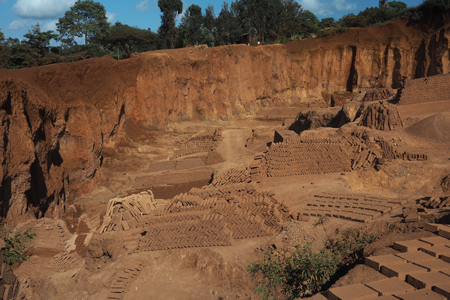
Brick quarry and bricks
|
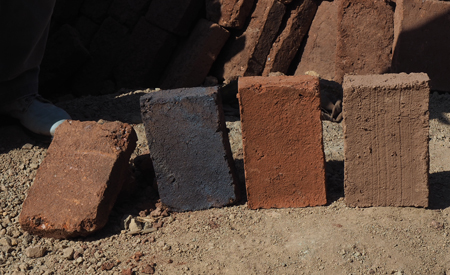
Varieties of bricks |
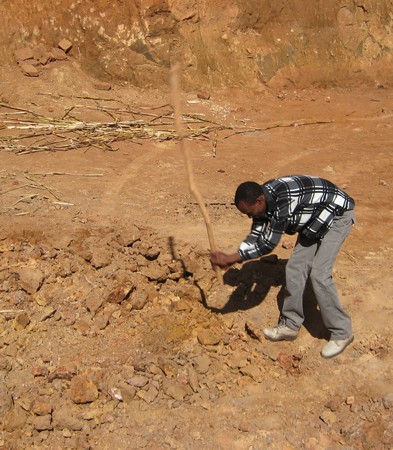
Brick making - pulverizing the clay by hand
|
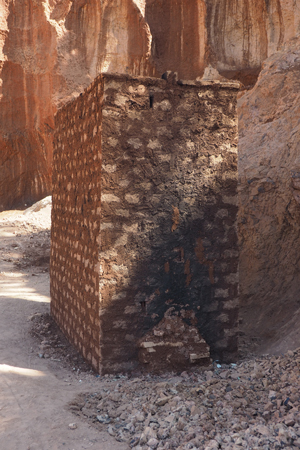
Brick making kiln |
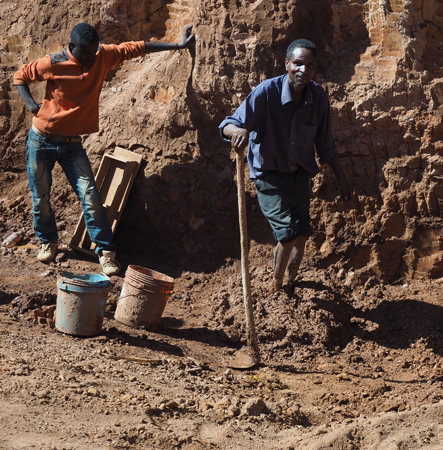
Brick making - mixing the mud
|
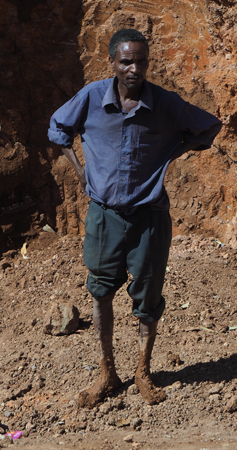
Brick making - a dirty job |
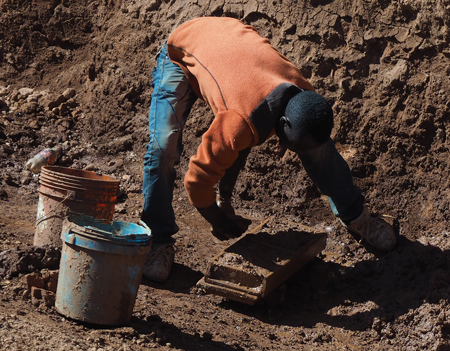
Brick making - brick molds
|
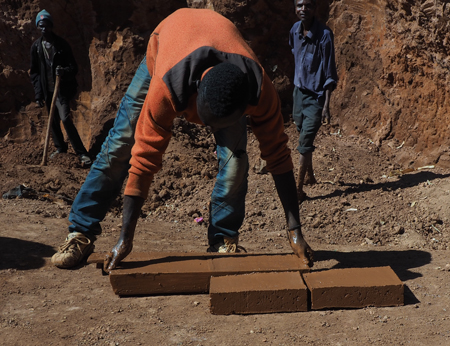
Brick making - finished bricks set out to dry |
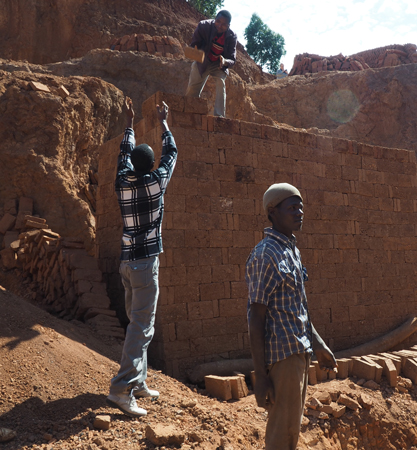
Brick making - stacking the bricks to make a kiln
|
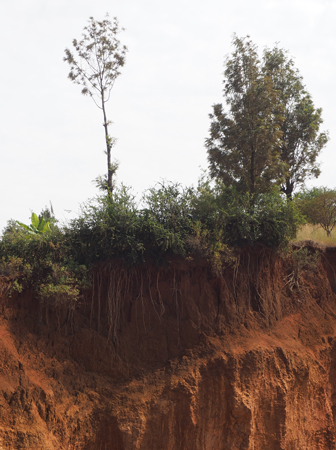
Tree roots growing down into the quarry |
Next we walked about a half-mile to a farmer’s cornfield and “helped” shuck corn from the stalks. The cattle will eat the stalks. At his farmyard and house we saw the corn drying on the cobs after which the kernels will be knocked off by hand and be ready to be sold or ground into powder. The farmer was making moonshine from millet and sorghum. It smelled very strong. We sat in his house and tried the local banana beer or fruit wine. No one had much as it was served in three shared glasses washed or rinsed in a bucket of local water. Maybe 10% alcohol was enough to keep us from getting “travelers’ sickness” but not everyone wanted to push their luck.
|
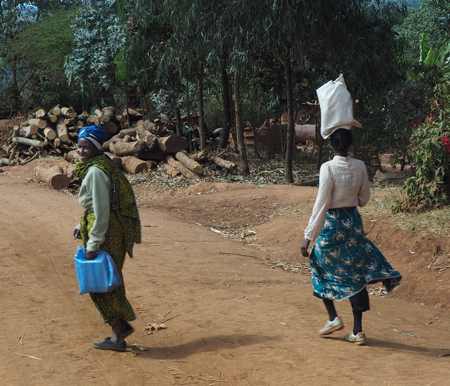
Carrying the load
|
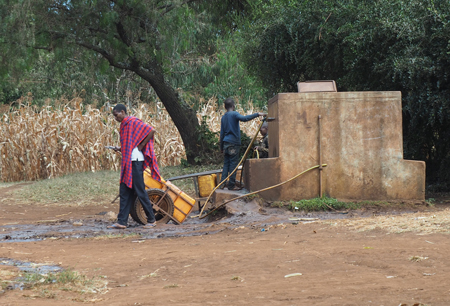
Water source |
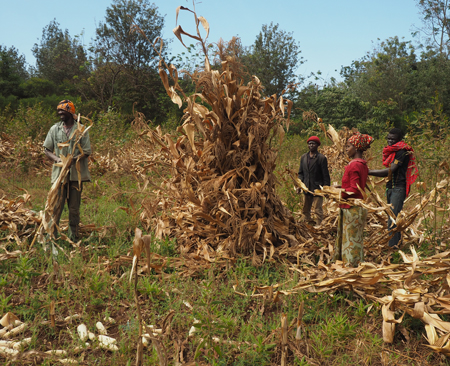
Husking Corn
|
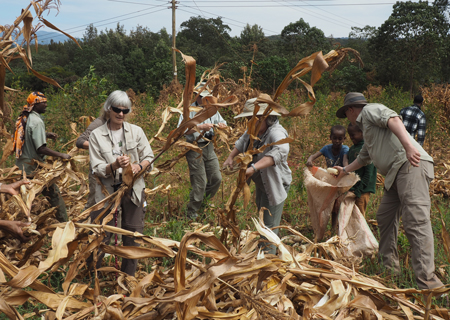
Husking Corn |
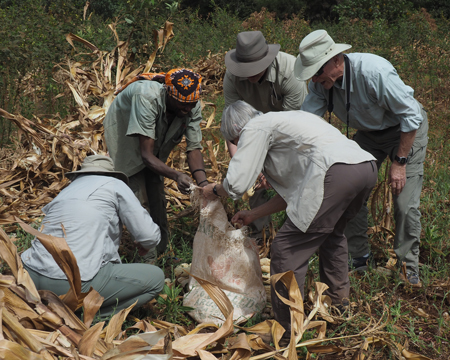
Husking Corn
|
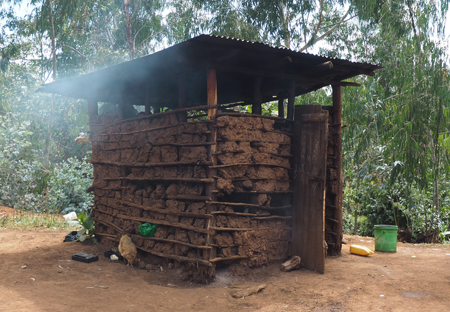
Liquor still |
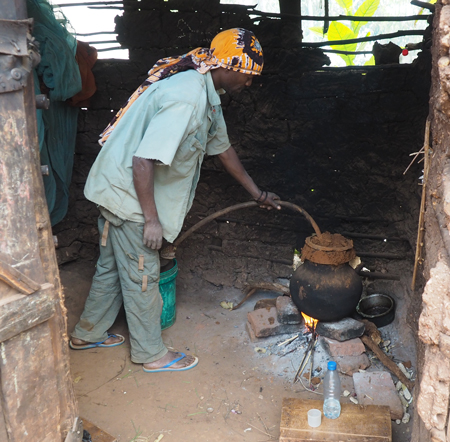
Making banana wine |
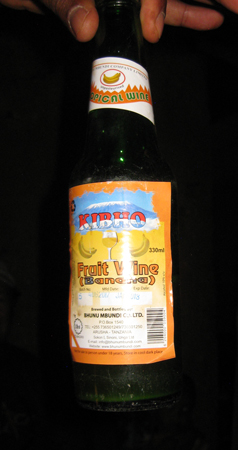
Banana wine
|
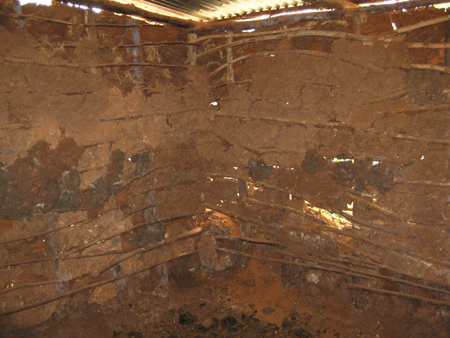
Home interior |
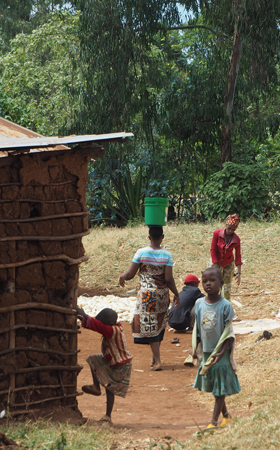
Kids
|
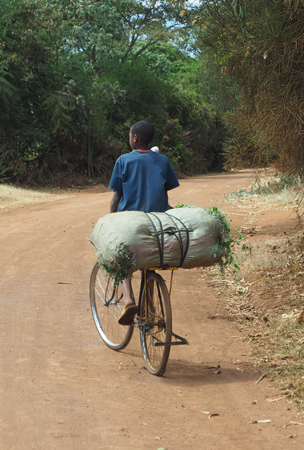
Bicycle transport
|
We walked to a coffee plantation and watched that whole process. Arabica coffee originated in Ethiopia so it grows well here. The berries are hand picked, soaked to get the sugar out of the pulp, and separated into light and dark beans. They are sun dried. The shell is removed in a hand-cranked machine, and then crushed with a large mortar and pestle. (We took turns trying this hand labor.) The chaff is shaken off and then the beans are roasted for 45 to 60 minutes by a man continually turning the cylinder. They are cooled on a screen bed. We were served some of this coffee and it was delicious. Some of our group bought some to take home. |
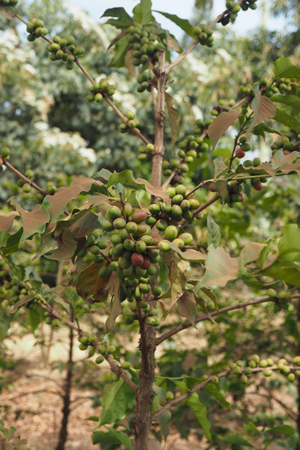
Coffee trees and beans
|
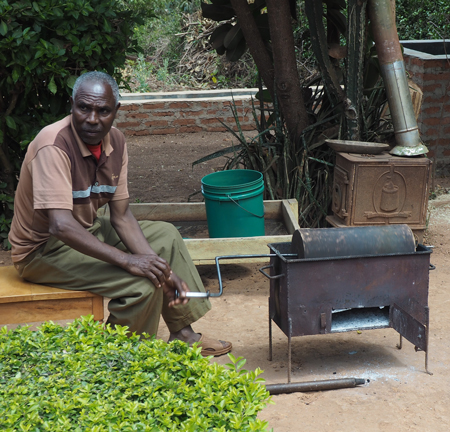
Coffee plantation - the roaster |
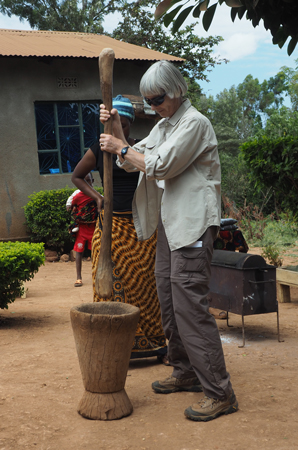
Coffee plantation - crushing the beans |
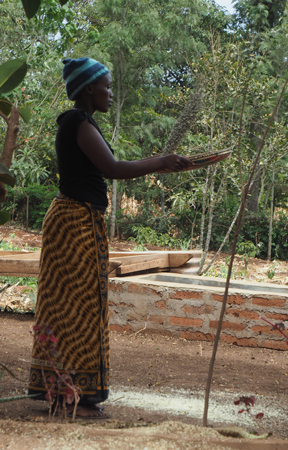
Coffee plantation - separating beans from chaff
|
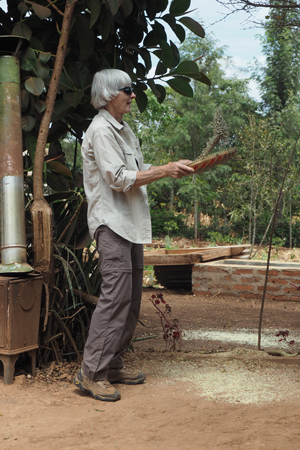
Coffee plantation - separating beans from chaff
|
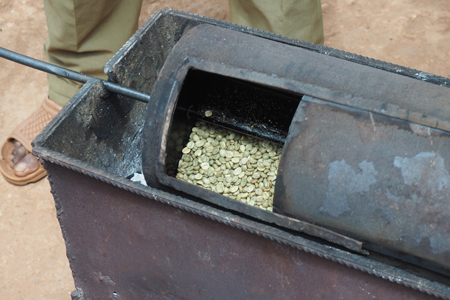
Coffee plantation - beans in the roaster |
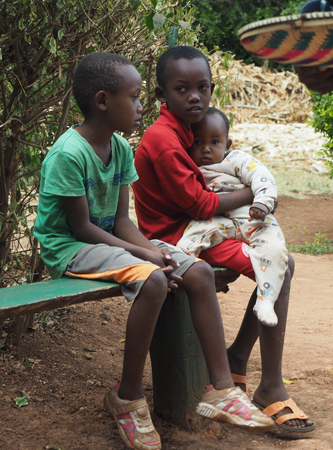
Coffee plantation - kids
|
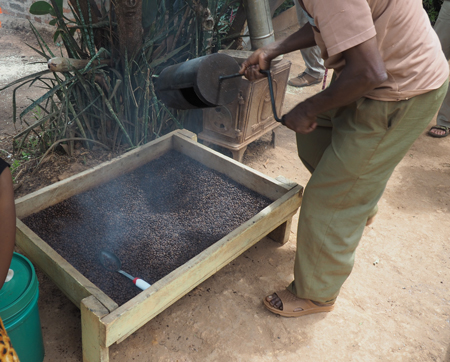
Coffee plantation -cooling the roasted beans |
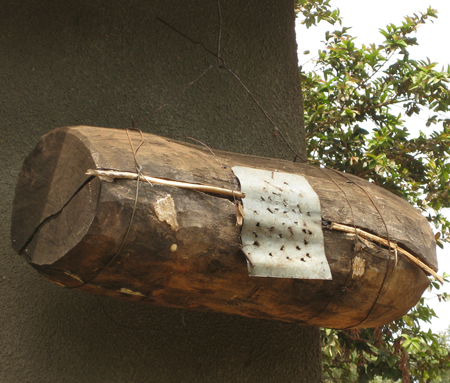
Coffee plantation - bee hive
|
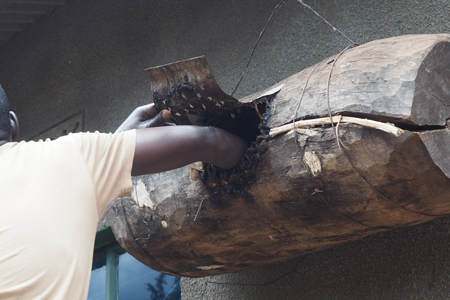
Coffee plantation - getting the honey out of the hive |
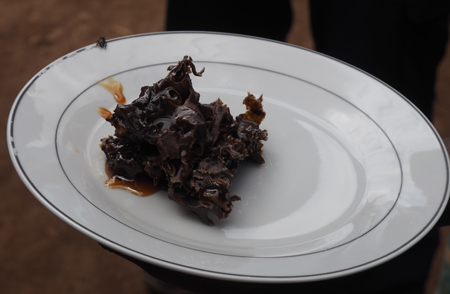
Coffee plantation - honey comb
|
We were driven to the local market and walked through the area being pestered the whole time by kids trying to sell us stuff. It was very annoying. |
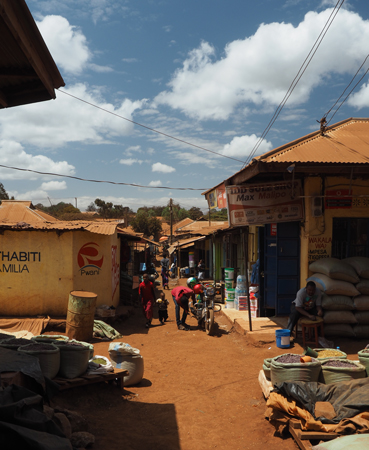
Market in Karatu
|
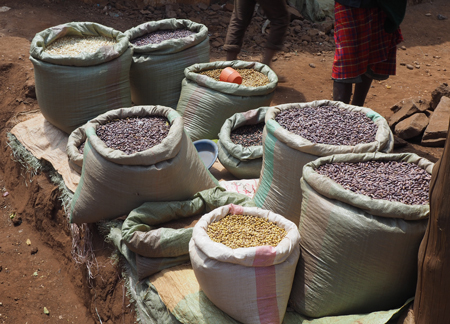
Market in Karatu |
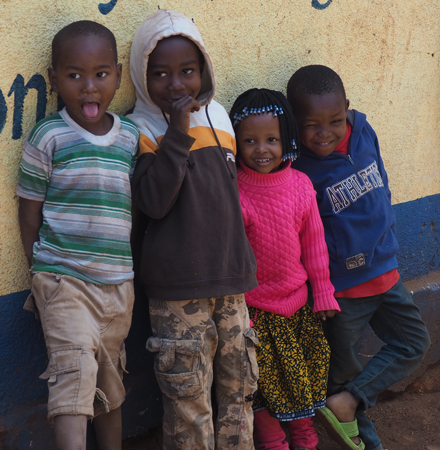
Market in Karatu
|
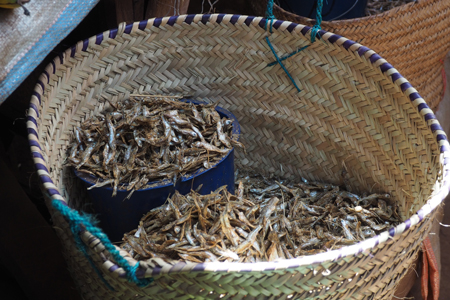
Market in Karatu - dried fish |
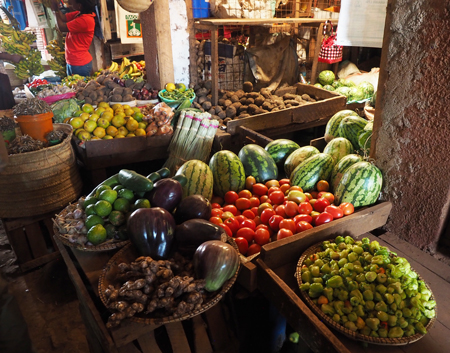
Market in Karatu
|
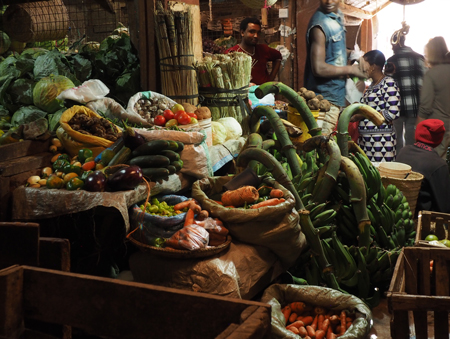
Market in Karatu |
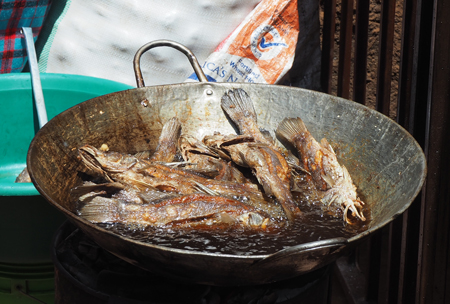
Market in Karatu |
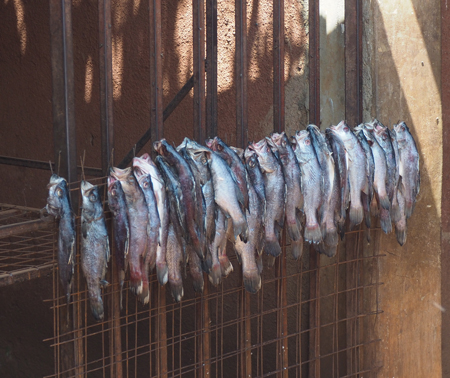
Market in Karatu
|
We rode in tuk-tuks to our next lodge in town, Country Lodge Karatu. After a typical buffet lunch – the rice pudding and rhubarb crumble were delicious – we had the rest of the day off.
|
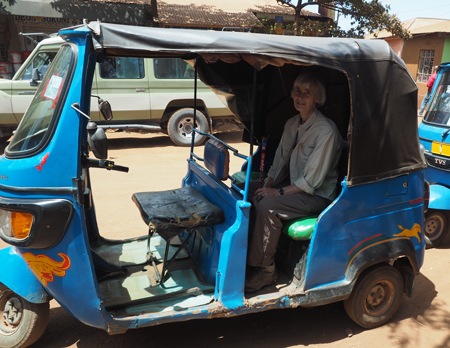
Gale in our tuk-tuk
|








































